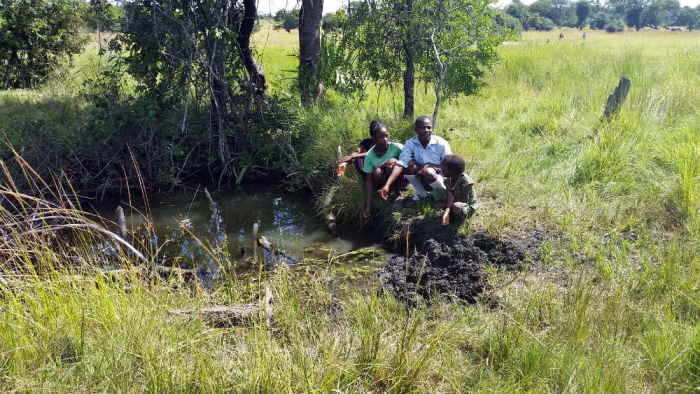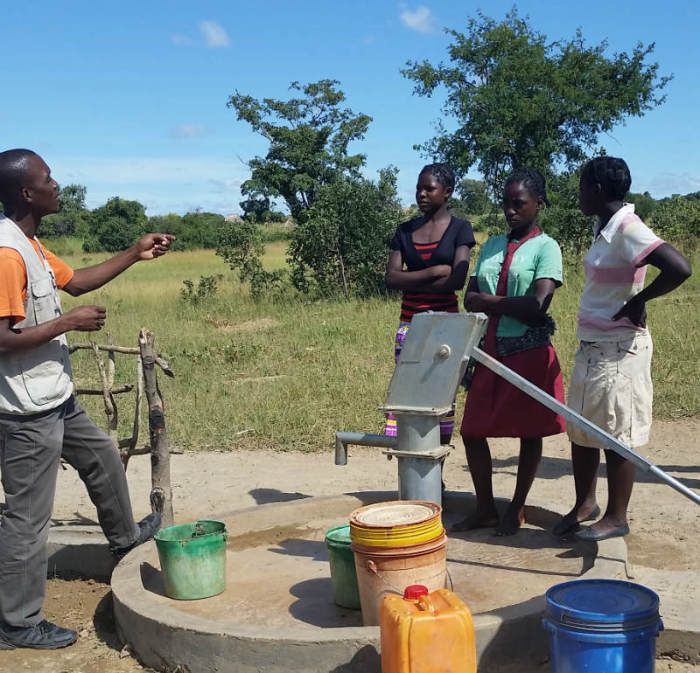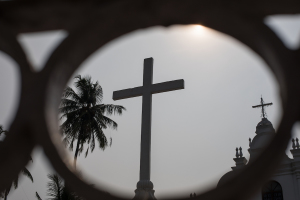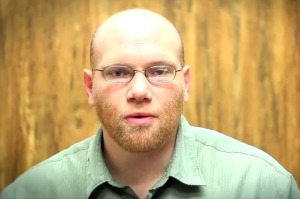Sickness, Discomfort and Death: the Fate of Families and Children With No Access to Clean Water (CP in Zambia - Part 1)
CP Was Invited by World Vision Zambia to Meet With Villagers Impacted by Their Water, Hygiene and Sanitation Programs
Editor's note: The Christian Post was invited by World Vision Zambia to meet with locals who've been impacted by the organization's water, sanitation and hygiene program. This is the first of a series of articles on that trip, which took place March 22-28.
Mira Buumba, 55, could have died. Or so it seemed when she became severely ill from a bout of diarrhea. Unable to take care of herself, much less do common household chores, Buumba's grandchildren had to skip school to help take care of her. Neither Ms. Buumba nor her family had any idea what had made her so gravely ill, further complicating the situation. They did not realize, until later, that the cause of her sickness was the very water that her family and neighbors had been using everyday to cook, clean and keep themselves hydrated.
"If you saw her photo you would be shocked," World Vision Zambia Communications Officer Collins Kaumba, serving as a guide and translator, said relating her previous condition.
But Ms. Buumba was not the only one who had fallen sick, experienced discomfort, or, in the case of one of her grandchildren, suffered a strange eye infection because of the water they were drinking.
The residents of Bulanda village in Hamaundu in southern Zambia, specifically those at the Buumba homestead, used to fetch their water from a dam and nearby pond. The pond was their most recent source, as well as the water source for dogs and pigs. In one instance, a dog had drowned in the pond. But the girls, regularly tasked with fetching water, did not discover the dead animal in the water until its body had started to rot and burst open.
Their only option was to remove the dog carcass and continue using this water source. The only other source for them was the dam, where people would fish — and also relieve themselves.

But Bulanda village now has a borehole and a water pump, which was officially opened to the community in October 2014.
Ms. Bummba said that before the borehole, "I never used to think I'd ever have a future or even think that I would be here today. Because I was one of those who was always sick. Now that they've brought this borehole and they started drinking from that borehole, I realized that everything changed. That made me realize that actually, that water was causing the problems."
"For this borehole, now we can safely say we have a friend who really loves us," she said, before adding a brief prayer. "Together, with you and us, we pray in the name of Jesus that we continue moving together."

Ms. Buumba contributed her emergence from death's door to the work of World Vision Zambia during a visit with The Christian Post at Bulanda village in late March. CP had traveled to Zambia for a week-long visit at the invitation of the Christian nonprofit.
World Vision, founded in 1950, provides relief, development and advocacy assistance to economically-challenged children, their families and their communities. World Vision states on its website that it works "in nearly 100 countries, serving all people, regardless of religion, race, ethnicity, or gender."
The organization began its work in Zambia in 1981, by directing its attention to three community programs in one district. By 1995, World Vision Zambia had introduced what it calls Area Development Programs, or ADPs. These ADPs, currently numbering 39, spanning 29 districts and affecting more than 2 million people, provide service and education in the areas of health, nutrition, education, livelihood security and economic development.
This CP reporter, along with another journalist, a blogger, a D.C.-based World Vision media relations manager, and local World Vision Zambia staff, visited various villages and communities between March 23 and 27 to see and hear about what differences, if any, clean water had been making in the lives of their members.
One particular program that CP saw the effects of up close, the one which Ms. Buumba praised, is World Vision Zambia's initiative called WASH, an acronym that stands for water, sanitation and hygiene. Based on what CP observed during time in the field with local staff and villagers, success of World Vision Zambia's many other programs seem to rely heavily on whether communities embrace and implement WASH.
Things made real today: No #CleanWater = chronic sickness/discomfort; death; no school; little time to be a kid. #CleanWater=a future.
— Nicola_A_Menzie (@namenzie) March 24, 2015As seen with the Buumbas, villagers reliant on unsanitary water for bathing, laundry, cooking, cleaning and for drinking expose themselves to everything from diarrhea to typhoid, and bacterial diseases that are especially crippling for children.
The infant mortality rate is 70 for every 1,000 births, which places Zambia on the list of countries with the highest rate of deaths of children under the age of 1. More than 5,000 children die every year due to diarrhea, while other deadly factors include malnutrition and HIV and AIDS, according to UNICEF. The United Nations organization also reports that 4.8 million people (36 percent of the population) do not have access to clean water, while 6.6 million lack access to proper restrooms — factors present also at schools. Zambia's population numbers around 14.5 million people.
Drinking dirty water day in and day out not only exposes one to sickness, disease and death, and disrupts a child's education and potential for future mobility, but dirty water also kills cattle, which puts another dent in the livelihoods of villagers who rely on farming and herding to put food on the table and money in their pockets.
Ms. Buumba was so grateful for the radical change that a clean water source had brought to her health, and the well-being of her family and of the Bulanda community, that she broke out in song after a blogger in the visiting party asked, "What are their hopes for their children and their grandchildren?"
A dozen or so children, sitting under the shade of two trees, a handful of men sitting on their right, and a handful of women on their left — all representing about 10 families that had gathered at the Buumba homestead to share their stories — were quick to join Ms. Buumba in her song when the matriarch stood to her feet, opened her arms and then opened her mouth.
The video below gives a glimpse of Ms. Buumba singing and dancing, while the audio player beneath it provides a full clip of her song, and Kaumba's translation.
"We sing this song to show our joy when we saw that borehole," Ms. Buumba said after finishing her song, as translated from the Tongo by Kaumba. "We're actually thinking and trying to relate how we used to live. The moment we saw the borehole we felt a bit strengthened, and from that point when we started using the water we no longer suffered from diarrhea again."
She added, "We were very excited because one of the challenges we had was that these children could not go to school because they used to spend time to take care of us whenever we were sick most of the time, as a result of diarrhea. Because of that borehole, we believe now that these children have a future and will help us have a future too."




























